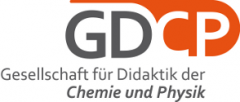Förderung eines funktionalen Modellverständnisses Lernender in der Quantenphysik
Bitzenbauer, Philipp & Meyn, Jan-Peter
Beitrag auf der GDCP-Jahrestagung 2020
Research investigating the context-dependency of student reasoning is generally based upon in-class and interview video data of students; some researchers, however, have argued that surveys can also be used to study shifting of student reasoning. One technique is to compare responses across problems that are isomorphic (that is, the questions require the same physics principles to be solved). If students answer differently on these problems, it suggests that their reasoning is affected by the context of the problem and has hence not yet crystallized into either the scientific conception or a misconception. A second technique is to ask students to rate how confident they are in their answers. In this talk, we will discuss our use of these two features in a two-tier multiple choice-survey aiming to characterize student reasoning about half-life. In particular, we assess how well students are able to distinguish the predictable characteristics of a large collection of radioactive nuclei from the random nature of an individual nucleus in that collection.
Referenz:
Bitzenbauer, Philipp & Meyn, Jan-Peter (2021). Förderung eines funktionalen Modellverständnisses Lernender in der Quantenphysik. In: S. Habig (Hrsg.), Naturwissenschaftlicher Unterricht und Lehrerbildung im Umbruch?. Gesellschaft für Didaktik der Chemie und Physik, Online Jahrestagung 2020. (S. 270). Universität Duisburg-Essen
Den Beitrag können Sie hier als pdf herunterladen.
